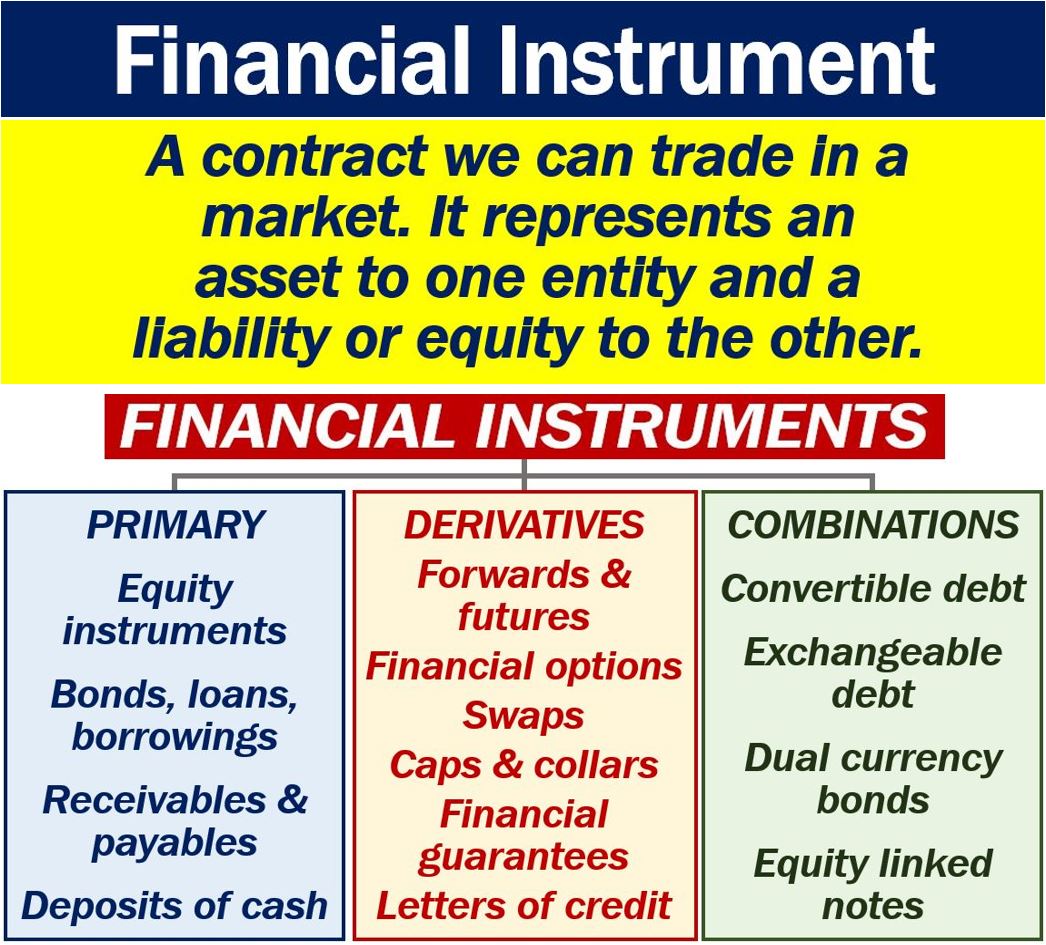A Financial Instrument is a monetary contract between parties. We can create, trade, or modify them. We can also settle them. A financial instrument may be evidence of ownership of part of something, as in stocks and shares. Bonds, which are contractual rights to receive cash, are financial instruments.
Checks (UK: cheques), futures, options contracts, and bills of exchange are also financial instruments.
Securities, i.e., contracts that we give a value to and then trade, are financial instruments.
Put simply; a financial instrument is an asset or package of capital that we can trade.
With the advent of blockchain technology, digital currencies like Bitcoin and Ethereum have also become recognized as financial instruments, challenging traditional concepts of currency and asset classification.
The Association of Chartered Certified Accountants (ACCA) has the following definition of a financial instrument:
“A financial instrument is any contract that gives rise to a financial asset of one entity and a financial liability or equity instrument of another entity.”
“The definition is wide and includes cash, deposits in other entities, trade receivables, and loans to other entities. investments in debt instruments, investments in shares, and other equity instruments.”

Financial instrument – cash or derivative
There are two main types of financial instruments, derivative and cash instruments.
Derivative instruments
Derivative instruments are instruments whose worth we derive from the value and characteristics of at least one underlying entity. Assets, interest rates, or indexes, for example, are underlying entities.
We also call them ‘derivatives.’ They are contracts whose values come from the performance of an underlying entity.
Derivative instruments are securities that we link to other securities such as stocks or bonds. ‘Stocks,’ in this context, means the same as ‘shares.’ Derivative instruments can also be linked to Forex and Cryptocurrencies.
Cash instruments
Cash instruments are instruments that the markets value directly. Securities, which are readily transferable, for example, are cash instruments. Deposits and loans, where both lender and borrower must agree on a transfer, are also cash instruments.
Financial instruments by asset class
We can also categorize financial instruments by asset class, depending on whether they are debt or equity-based.
- Debt-based financial instruments reflect a loan the investor made to the issuing entity.
- Equity-based financial instruments, on the other hand, reflect ownership of the issuing entity.
Regarding these types of financial instruments, Wikipedia writes:
“If the instrument is debt, it can be further categorized into short-term (less than one year) or long-term.”
“Foreign exchange instruments and transactions are neither debt- nor equity-based and belong in their own category.”
Financial instruments may also encompass insurance contracts and various financial derivatives not directly linked to traditional securities or cash instruments.
Additionally, innovative digital assets, such as non-fungible tokens (NFTs), are emerging as a novel class of financial instruments, expanding the boundaries of asset trading and ownership.
